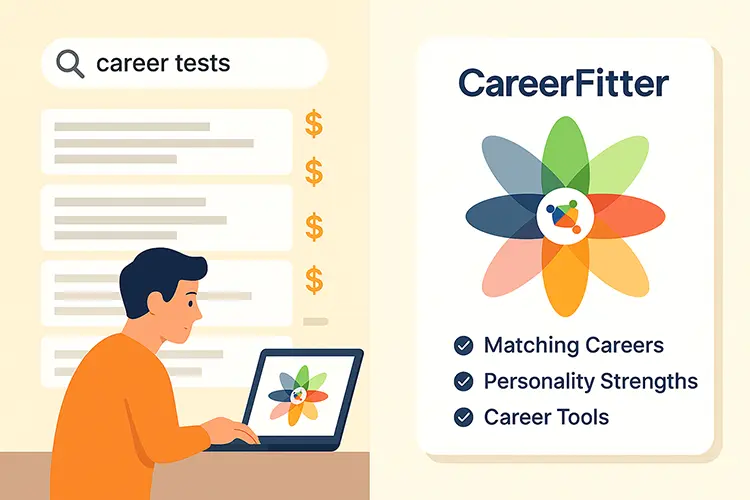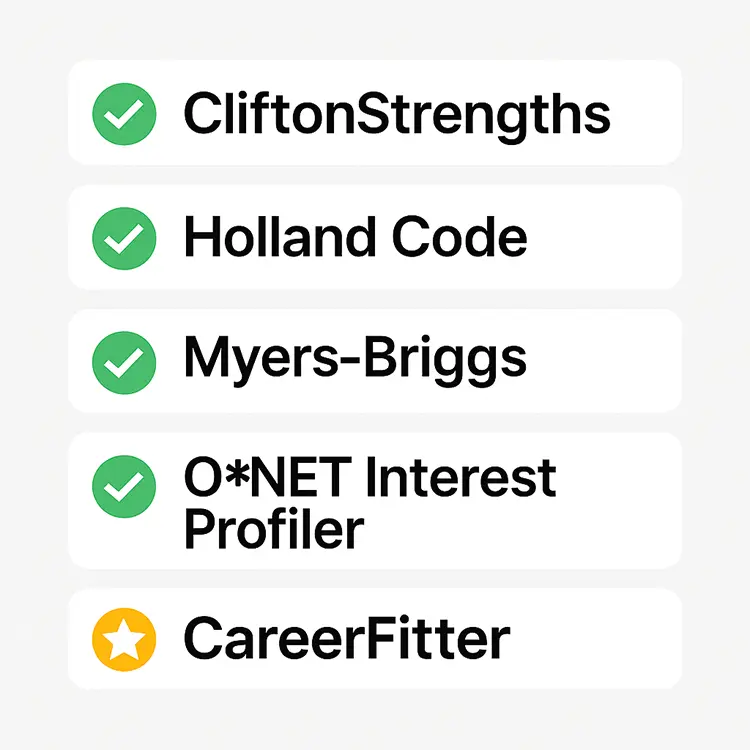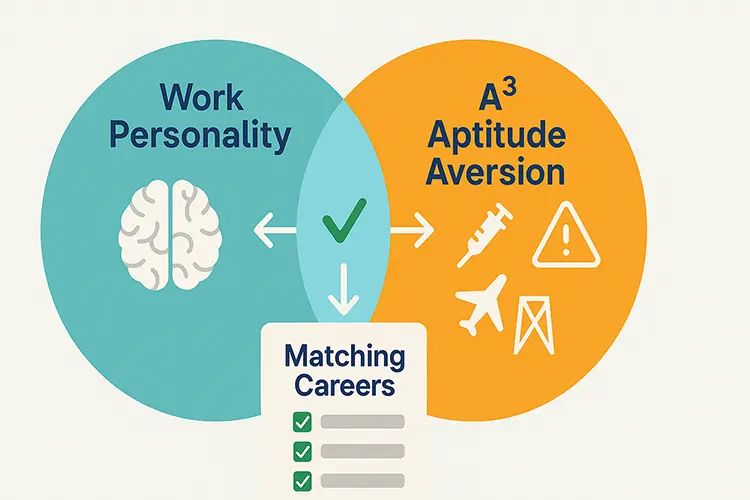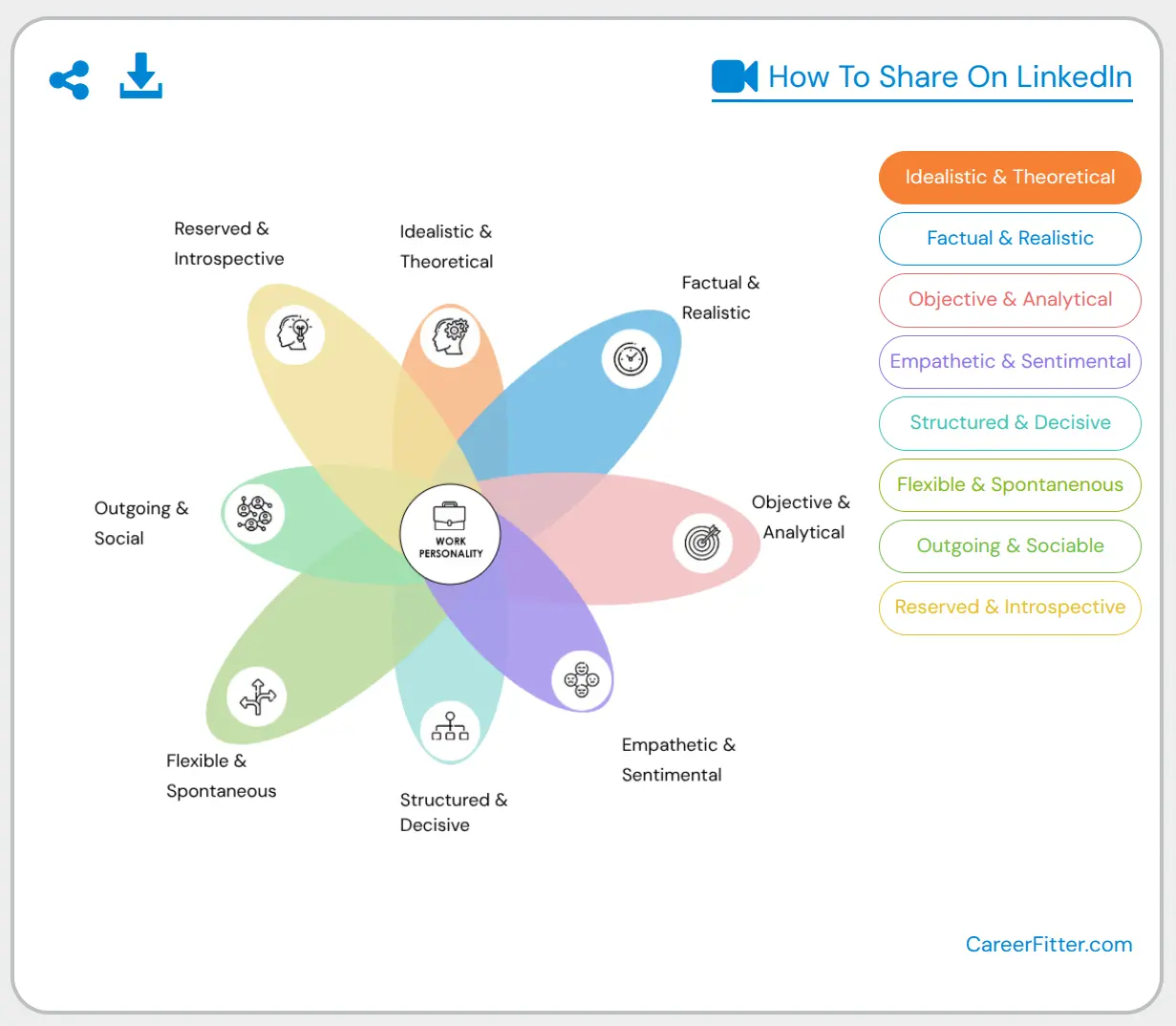25 Career Advisors Ranked Their Favorite Career Tests - Only One Was on Every List
I typed “best career test” and then “best career assessment” into search engines then asked ChatGPT for good measure - and my screen exploded with personality quizzes, color-coded charts, and pricey “pro” assessments. Every site insisted its tool could pinpoint my perfect job, yet none would stake a claim on which test actually works.
A Report That Respects Your Time
The downloadable personality portion of the report gives headline insights and bullet points you can scan in under five minutes. When you want more, you can dive into career details -salary ranges, growth outlooks, how to get started, and O*NET videos. No forty-page jargon PDF dump; instead, you get a dashboard with integrated career tools derived from your results.
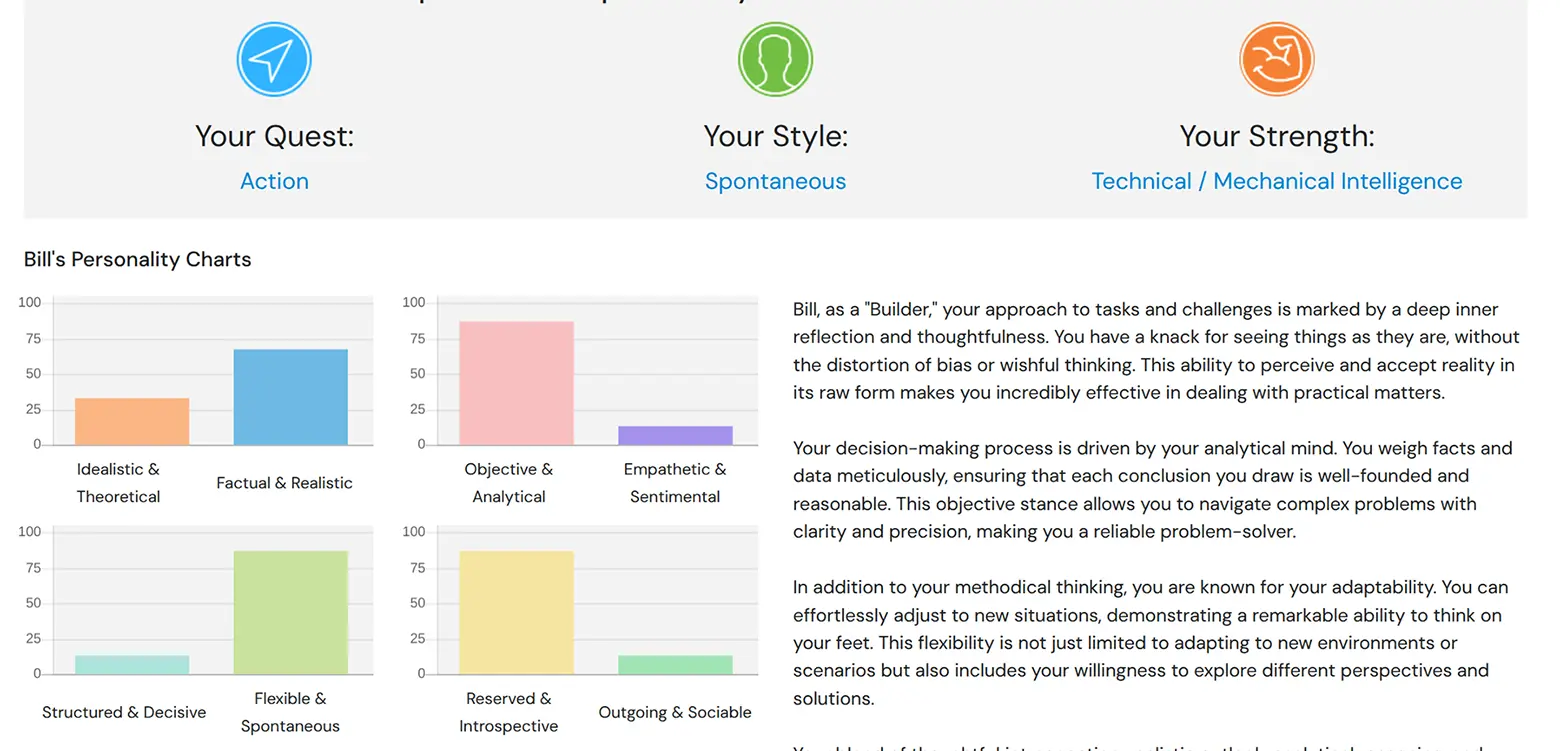
Filters to Zero-In on Your Ideal Roles
Once the master list of best-fit careers appears, you can adjust salary, education level, remote-work, and travel toggles to narrow the field to roles that match real-life constraints - and save your favourites in an instant shortlist.
How CareerFitter Fixes Handshake’s “Career Guessing” Problem
.webp)
An unexpected bonus is how CareerFitter complements Handshake, one of the largest early-career job search platforms in the United States, used by many college career centres and students.
Handshake excels at listing job openings, yet assumes the student is able to answer the foundational question: what job should I even be targeting?
Handshake presents a giant pick-list of careers that prompts students to “choose what interests you,” . This is something that should never be guessed at and is a huge waste of time and money when a student is wrong. It’s ultimately blamed on the college or university when a graduate is unhappy in the occupation they chose. Too many undergraduates guess.
CareerFitter bridges this gap:
After you finish the assessment, it provides a ranked list of careers in the same list format Handshake uses. Open both tabs side-by-side and add CareerFitter’s recommended roles directly to Handshake’s list. Handshake’s matching engine now operates on evidence-based recommendations.
Pro tip: They have a program specifically for school advisors that provides career assessments and Premium results for students for no cost and allows the advisor to view the students' results.
Live Data & Job Links
Each career on your list links to a page that merges Bureau of Labor Statistics growth data, O*NET skills information, and a live ZipRecruiter feed. With one click you can confirm demand, verify pay, and see who is hiring.
Market Your Strengths with the Career Strengths Report (CSR)
Hiring professionals study a role’s success traits before they scan résumés. Your CSR does that homework for them:
- Shows overlap—never gaps. It highlights only the strengths you actually possess that align with the role’s profile.
- Assessment-backed credibility. Traits come straight from your assessment results, so hiring managers read them as evidence, not fluff. They are also tailored to the specific career you’re pursuing.
- Bullet-ready talking points. Each strength is paired with a requirement the hiring manager already values—useful during interviews or in correspondence.
- Share-link convenience, total control. Every CSR is a private, unique web link—no bulky PDFs or misplaced attachments. Drop the URL into an email, LinkedIn message, or Handshake field; it is visible only to those you share it with, and you can toggle the link on or off from your dashboard at any time.
- Reusable. Generate up to five CSRs for different target careers without retaking the test—a major advantage when applying to both Software Developer and Operations Manager roles.
Pro tip: place the CSR link directly beneath your contact information on your résumé. Hiring managers appreciate proof they can verify with a single click.
How the Career Tests Compare
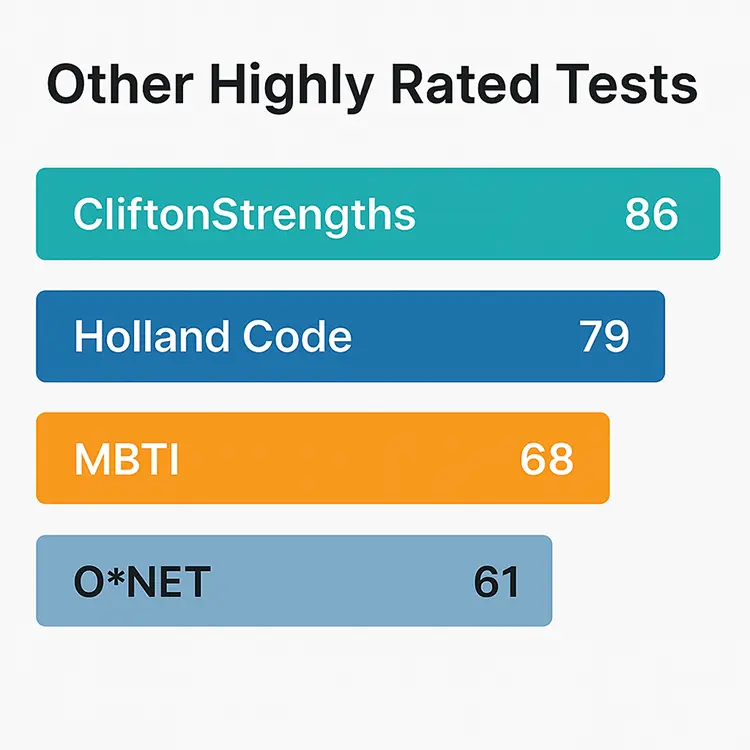
*Advisor Score = weighted points from 20 certified career advisors (5 pts for 1st-place vote … 1 pt for 5th), scaled to 100.
CliftonStrengths – Gallup’s inventory gives teams a common vocabulary (“Learner,” “Strategic,” “Relator”) but lacks CareerFitter’s holistic profile: no A³ lens, no Personality Fingerprint, no CSR. Advisors often pair it with a tool that integrates those features.
Holland Code (RIASEC) – A quick, six-theme filter; useful as a conversation starter. CareerFitter covers Holland characteristics and drills deeper with personality dimensions, A³ screening, Fingerprint graphic, CSR, and live job links.
Myers-Briggs Type Indicator (MBTI) – Popular for team dynamics but limited for career choice: personality only, no A³ screen, no live labour data, no CSR. Advisors treat it as an early-generation snapshot and supplement it with a modern assessment for job searches.
O*NET Interest Profiler – Free and regularly updated; excellent for interest-to-occupation mapping. It measures interests only and provides no personality component, A³ filter, Fingerprint, or CSR. Note that CareerFitter uses O*NET data—plus BLS, custom career data, and ZipRecruiter feeds—to enrich its own career-detail pages.
Next Steps to Choosing the Best Career Test
I originally planned to include a three-step decision guide for choosing a career assessment, but it’s clear that CareerFitter is in a league of its own. It combines the core elements of the other tests and adds advanced assessments, deeper career research, and practical tools the others simply don’t provide. You can test drive it with their free career assessment. If you upgrade to the Premium tools you don’t have to retake the test.
When to Bring in a Career Advisor
Self-guided assessments can take you far; yet major career pivots, leadership moves, or the need for structured accountability often benefit from an experienced career advisor. Below is a globe-spanning roster of advisors you might consider:
- ROHEI Corporation – culture-first leadership and career consulting (rohei.com)
- Inspire Cayman Training Center – vocational training and coaching in the Caribbean (inspirecaymantraining.com)
- Lagos Business School – executive education and career services in West Africa (lbs.edu.ng)
- Surpass Your Dreams, Inc. – academic and career planning for students (surpassyourdreams.com)
- Heartisans Marketplace – skills training through a social-enterprise model (heartisans.org)
- Trenton Services – workforce development and placement programmes (teamtrenton.com)
- Enlightened LCS – life-career strategy and coaching (elcs.info)
- Leaders House – leadership acceleration and mentoring (leadershouse.org)
- Complete College Counseling – college admission and early-career advising (complete-college-counseling.com)
- Jacqueline C. Ross, LLC – executive and career coaching (coachjackieross.com)
- Empowered Men Coaching – guidance tailored to men’s workplace challenges (empoweredmencoaching.com)
- Betalentful – strengths-based career coaching and workshops (betalentful.com)
- Secure Futures – financial-career literacy programmes for youth (secure-futures.com)
- Opportunity Resource Services – college-to-career guidance in Texas (orstx.org)
- Beth Griffin Leadership – leadership development and career-transition coaching (bethgriffinleadership.com)
- Career Insights – career assessment and coaching in Ireland (careerinsights.ie)
- Glass Ceiling Career Management – advancement coaching with a focus on women (glassceilingcareermanagement.com)
- Creative Consulting & Coaching – guidance for creative-industry professionals (creative-cc.com)
- Over50tv LLC – transition resources for professionals aged 50 and above (over50tv.com)
A skilled advisor can transform assessment insights into a step-by-step action plan - and keep you accountable as you move forward.


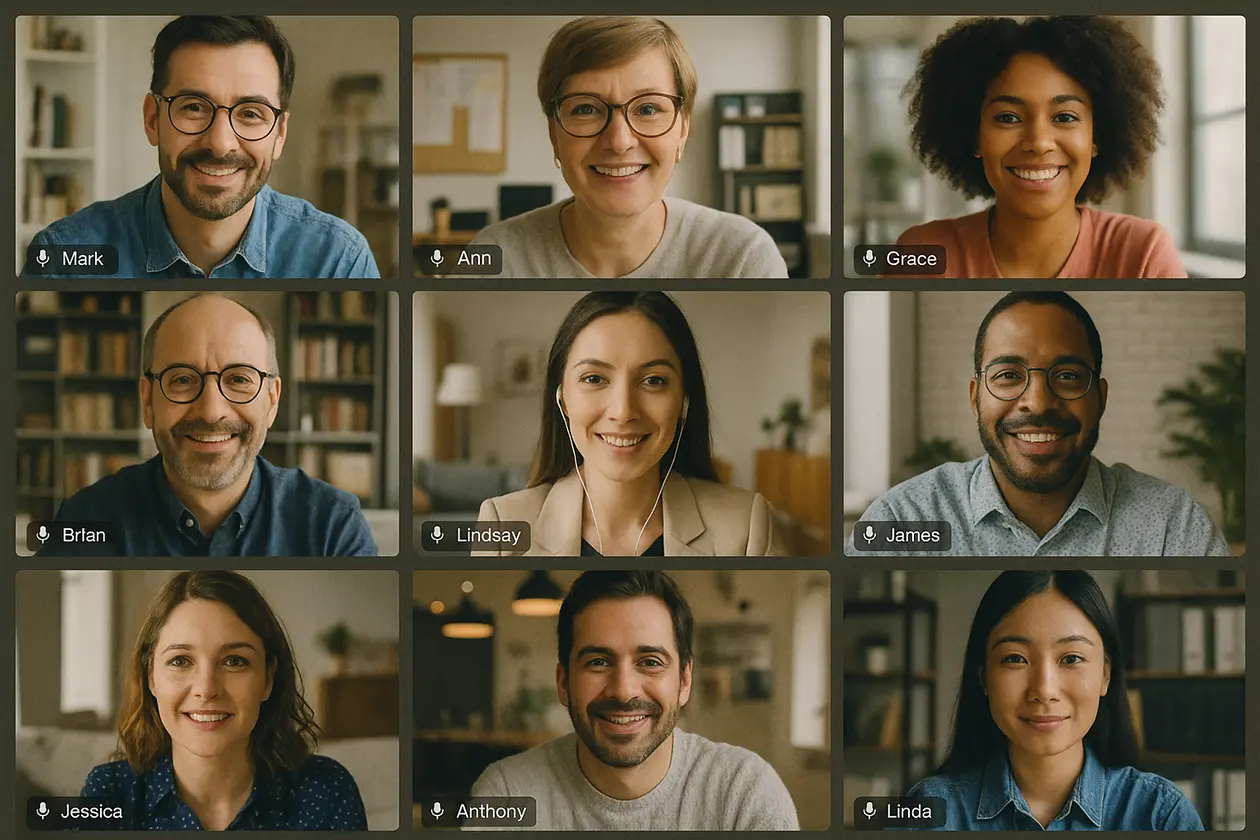
.png)
